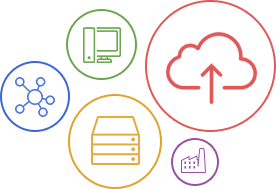WHY YOU NEED THE CLOUD FOR YOUR BUSINESS
More and more start-ups and small businesses are beginning to realize that The Cloud can give them the edge needed to compete with mid-sized and, even, “big players” of the business world.
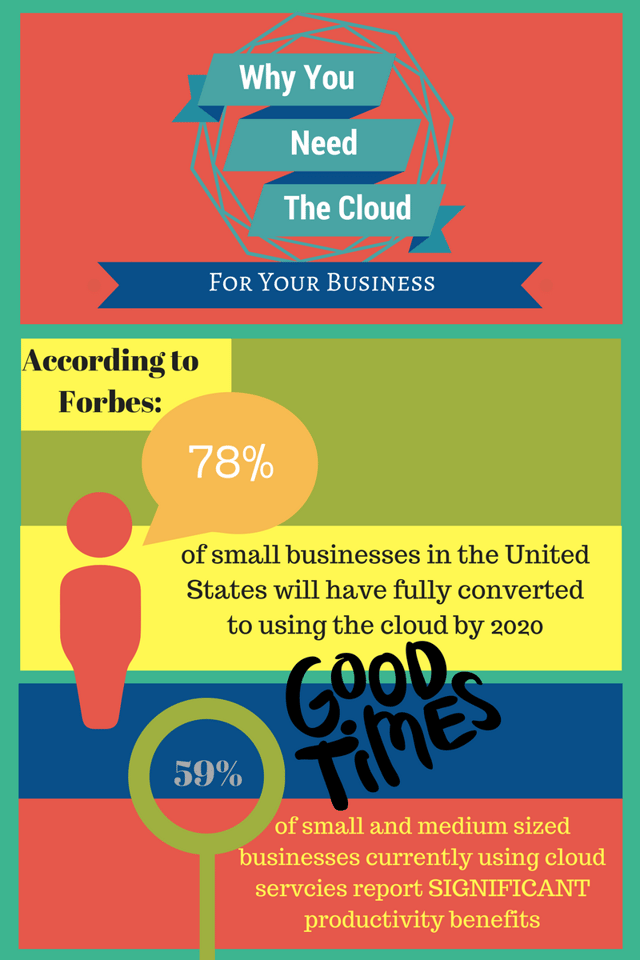
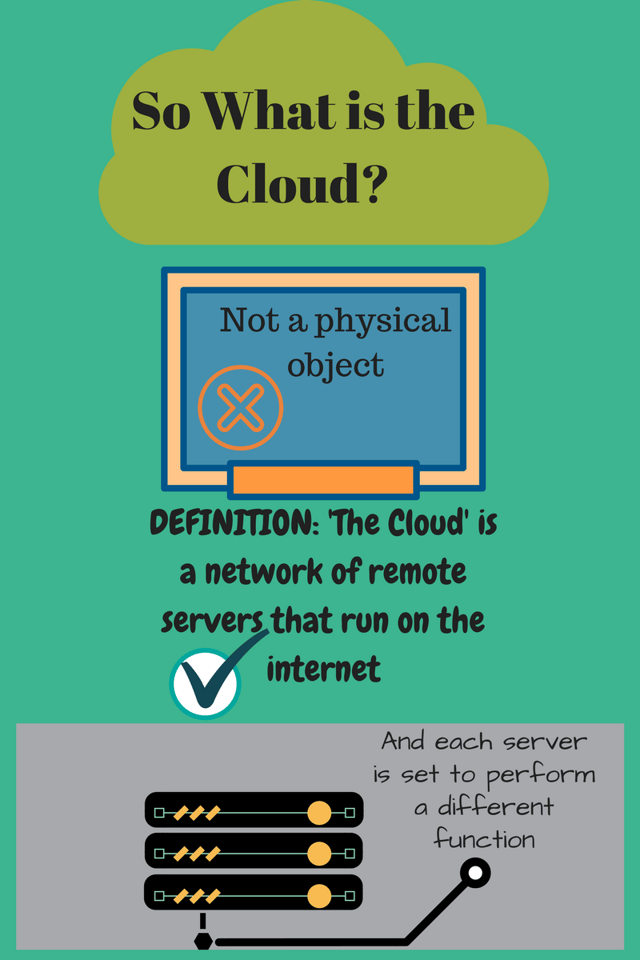
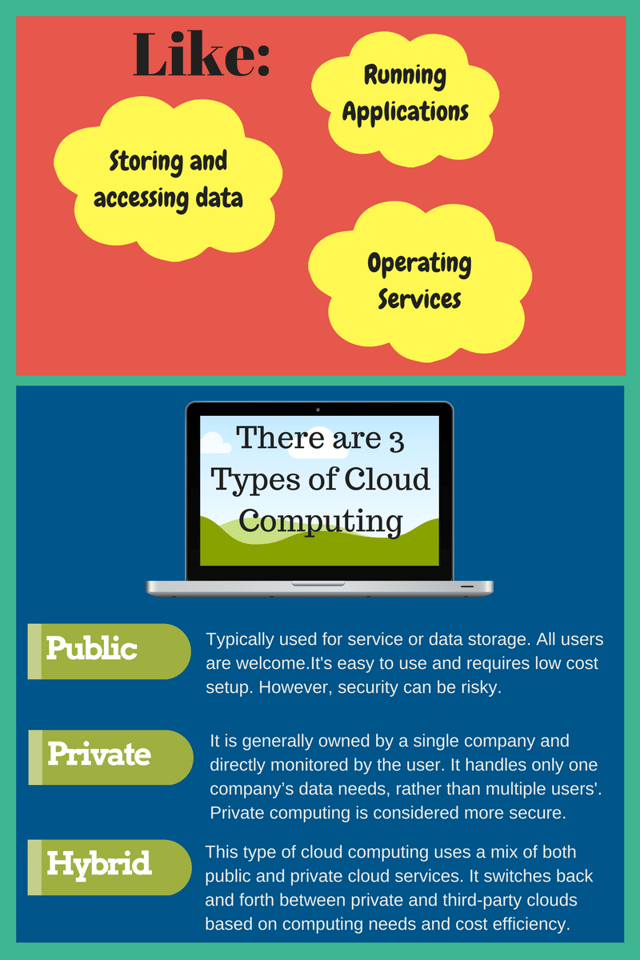
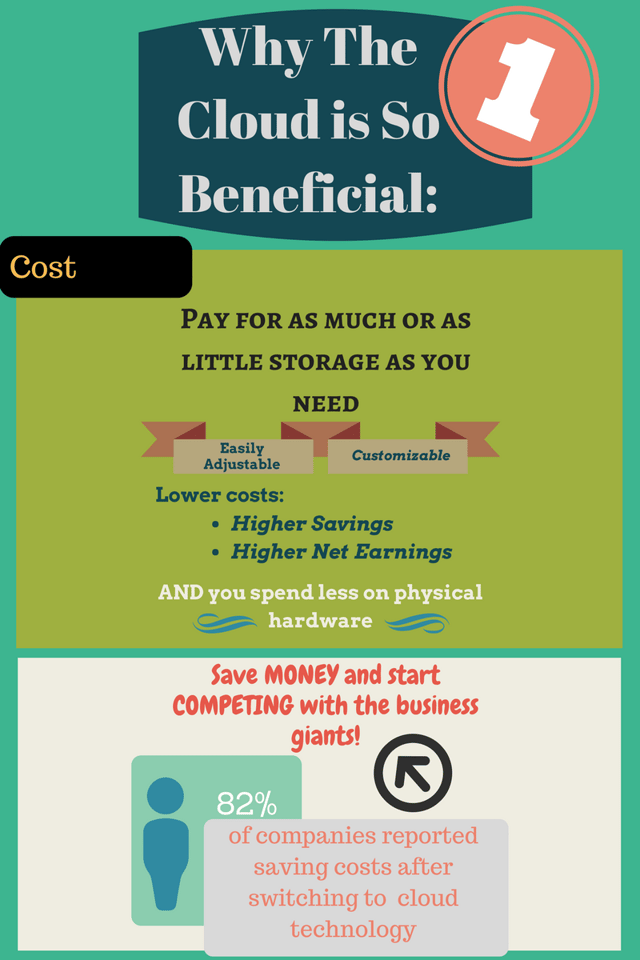
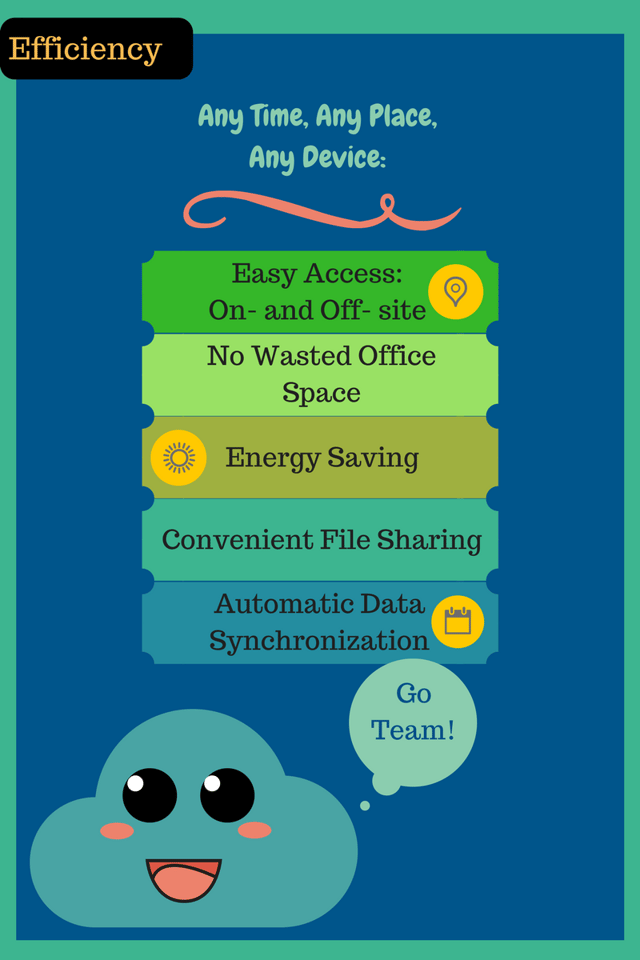
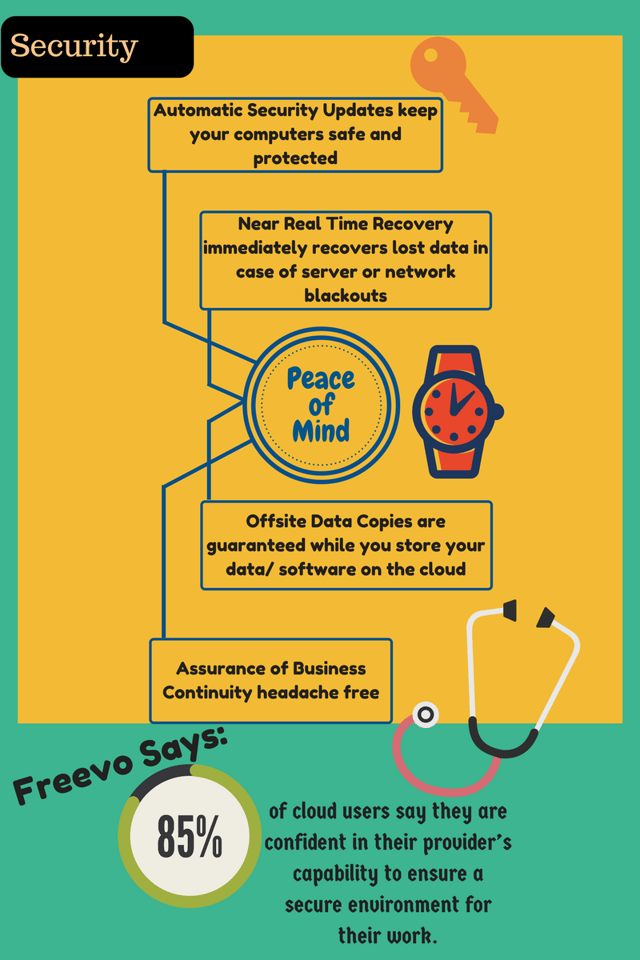
Often enough, small businesses do not have the dollar funds to invest in the necessary data backup and disaster recovery technology that larger companies can easily afford.
This disadvantage can be detrimental, sending small businesses to the dust of the industry.
But using the cloud can give these smaller businesses a way to fight back and even the playing field.
Which is why, so many small businesses are changing their offices to cloud-based environments. Emergent Research, ZenPayRoll (now known as Gusto), and Intuit, are just a few examples of small businesses that have placed their focus on using cloud services.
According to Forbes, 78% of small businesses in the United States will have fully converted to using the cloud by 2020.
And, 59% of small and medium businesses currenlty using cloud services report significant productivity benefits from information technology.
So why are these small businesses so interested in using the cloud? Because the cloud benefits companies in three big ways: cost, efficiency, and security.
But before we get ahead of ourselves with the benefits, let’s go over some definitions.
WHAT IS THE CLOUD?
To start, let’s explain what the cloud is not. The cloud is not a physical object; It is not something that you can touch and hold in your hand.
Now that we got that out of the way, we can define the ‘the Cloud' as, essentially, a network of remote servers that run on the internet. Each server is set to perform a different function. Servers can run applications and services.
Two exampels of such services are Netflix and Adobe Creative Cloud.
Or, servers can be used to store and access data. Think Google Drive and Dropbox.
There are three types of cloud computing: public, private, and hybrid.
-
- A public cloud is typically used for service or data storage, open, as its name suggests, to the public. All internet users welcome. Examples of public clouds include Google AppEngine and Amazon Elastic Compute Cloud. If you want to know more about Amazon's cloud computing services, check out this helpful tutorial for beginners.
Public clouds are easy to use and their set-up is low cost.
However, the downside to public cloud usage, is that security can sometimes be a bit riskier than on other types of cloud.
- A private cloud is generally owned by a single company. It provides mostly the same benefits of a public cloud, while keeping the data control center in the users’ hands (unlike the public cloud).
Private clouds exist to handle only one company’s data needs, rather than multiple users'. Since only one company has access to the cloud, security is tighter and more controlled than that of public clouds.
- A hybrid cloud uses a mix of both public and private cloud services. A hybrid environment switches back and forth between private and third-party clouds based on computing needs and cost efficiency.
- For instance, with a hybrid cloud platform, a company could use private cloud domains for sensitive information and use public clouds for more general, less delicate data.
Now that we've gotten our definitions down, we're ready to talk about why the cloud is so beneficial to small companies.
Cost
Before the cloud, companies had to shell out thousands of dollars on physical hardware. The waste was enormous as the value of physical hardware only decreases over time. Now, with the cloud, companies only have to pay for what they use, and the data is all online. No mess.
82% of companies have saved on costs by utilizing cloud technology in their businesses.
This is because the cloud’s system allows companies to easily adjust how much cloud storage they pay for in accordance with the needs of their businesses.
Lower costs mean higher savings and higher net earnings.
The relatively lower cost of cloud storage allows small businesses to save money and start competing with the business ‘giants’.
Efficiency
Since the cloud provides software and services that run on the internet instead of a local computer, data stored on the cloud is available on any device, in any place (so long as there is internet connection).
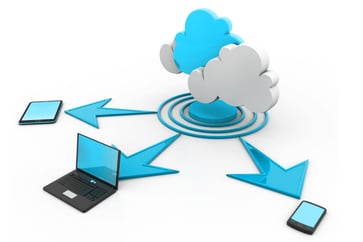
Aside from taking up less office space, this kind of virtualization creates easy access to any and all necessary company data, whether working on- or off- site.
Which means, that companies using the cloud are no longer limited to one location. Employees can finish their work even on days when they can’t make it into the office.
Having this flexibility can also be extremely helpful for collaborative efforts. Employees working from various remote locations, no longer have to work out the logistics of meeting up in one place, saving time and energy.
Team projects couldn’t be easier. The cloud offers easy file sharing and up-to-date synchronization of all data saved on the servers.
Such efficiency benefits create increased work productivity, giving small companies better footing against their competitors.
And don’t forget, the cloud is also energy efficient. The cloud’s energy conservation makes it a cleaner and more environmentally friendly option. So small companies switching their services over to the cloud are also helping out the Earth. Extra ‘green’ points for them.
Security
Storing data and software on the internet (i.e cloud backup) guarantees businesses offsite copies of their data. This is important when it comes to data backup and disaster recovery. Cloud backup guarantees that your data is safe, no matter the IT crisis.
Freevo gives an infograph depicting that 85% of cloud users say they are confident in their cloud provider’s capability to ensure a secure environment for their work.
Cloud computing provides automatic security updates, keeping companies aware and protected- just one less thing to worry about.
The cloud also offers near real-time recovery. With managed cloud providers, in case there is any sort of data blackout, IT teams have the chance to recover any missing data before consumers even have the time to notice a discrepancy. This last feature of cloud backup is crucial for small businesses, giving them an assurance of business continuity.
As the old saying goes “time is money”, and for businesses, the cloud saves both.
Schedule a free consultation with Etech 7 today, to find out how the cloud can benefit your company.


